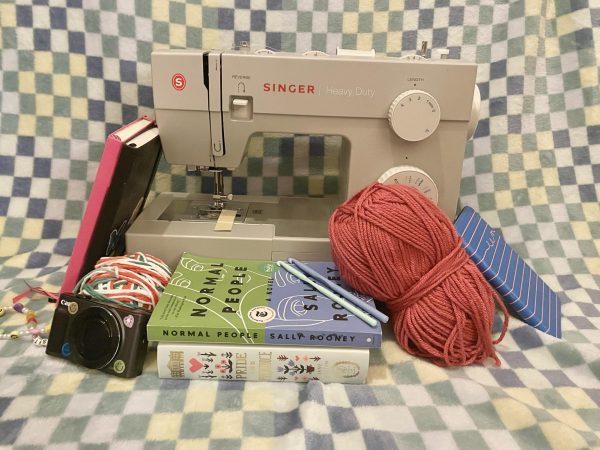Too Much Fluff, Too Little Substance
How the News Industry is Focusing on Trivial Topics
Fluff pieces have become more prevalent; important events are receiving less coverage due in part to desensitization to tragedy and the necessity requirement to hold readers’ attention.
In some cases, less reputable and trafficked news outlets resort to exaggerating the truth in order to keep readers on the page. According to Time, humans may have a shorter attention span than goldfish – these small fish are only able to focus for 9 seconds. With AHS and The City of Aspen severely lacking in diversity – 90% of the population identifying as being solely white – writing about provocative topics with an imperative for sensitivity can be difficult. News sources, including our own Skier Scribbler, are insufficient in depth and substance. In recent years, news has lost its potency and relevancy.
Studies suggest that the drop in attention span that may be connected caused by either COVID, technology, or both. No matter what the cause is, this can affect readers’ consumption of news. While yes, it is true that our attention spans have gone down; is it really fair for writers to alter their articles to accommodate this? News sources should not change their content based on people’s inability to read quality pieces. Writing style can accomplish the same objective. Shorter sentences are one way of compensating for a lack of longer attention spans. However, this does nothing but diminish the potential that articles have.
The front page of a newspaper typically offers the articles holding the most relevance and importance: the coveted cover spot. The war in Ukraine, the earthquake in Syria and Turkey, and Joe Biden – if you read the news frequently, you’re sure to have read multiple articles about each topic, all involving similar approaches and coverage. Realistically, reading about one topic over and over with few differing perspectives is not ideal nor desirable among readers. In the case of the war in Ukraine, continued coverage is important to continuously garner public support. However, with repeated coverage of a barely-changing situation that has a counterintuitive effect, readers will lose interest.
Seeing extremely similar articles on the front page of the paper for days on end hinders the importance of the remaining articles. Through doing this, readers may get the message that other articles aren’t even worth reading at all – even if these other topics may be just as significant. Constant coverage of the same issue will not succeed in keeping readers’ attention, and certain topics will likely fall by the wayside.
The repetitiveness and similarities of the news can lead to two major issues. Some less reputable news outlets may resort to exaggerating the facts or attempting to pass opinion and inference as the truth in order to catch and hold the reader’s attention. But why would they have to exaggerate the truth in the first place? With how prevalent disaster is prevalent and information is accessible, therefore, how easily accessible it is through the internet, readers are often desensitized to tragedy. Constantly reading about Russian atrocities in Ukraine and the constant discovery of mass genocide of civilians make these acts of barbarity seem almost normal, although this is most likely the opposite of the news source’s goal. This is specifically seen when horrible acts of human savagery occur in other places where it is a more common occurrence. Readers will not be as affected as if it were closer to them, it seems almost acceptable because it occurs so often. News outlets may try and make an event seem more original by twisting one part of it – or in some extreme cases – fabricating parts of the story.
With some exceptions for the nation’s largest and most reputable news outlets, most of the headlines of local newspapers lack any depth. In a lot of smaller, corporate-owned newspapers, journalists hold back from being provocative. Unfortunately in some of the cases, this is a result of reporters having to be careful to avoid warranting backlash from higher-ups in the organization, against the foundation of journalism. In other cases, including for many journalists on our own Skier Scribbler, the effort required to write an investigative and provocative article is trumped by the ease and excitement of a fluff piece. Simply writing surface-level surface level reviews or attention-grabbing, funny pieces, will be better received by readers and takes minimal effort. Provocative pieces won’t always be the most attention-grabbing and also are more likely to bring you flak.

This is Beau's second year with The Skier Scribbler. He is a junior and is passionate about the environment. He likes to rock climb, ski, and be outside. ...

Quintessa Frisch is a senior at Aspen High School. This is her fourth year writing for the Skier Scribbler, and she has taken on the role of Editor-in-Chief...


























